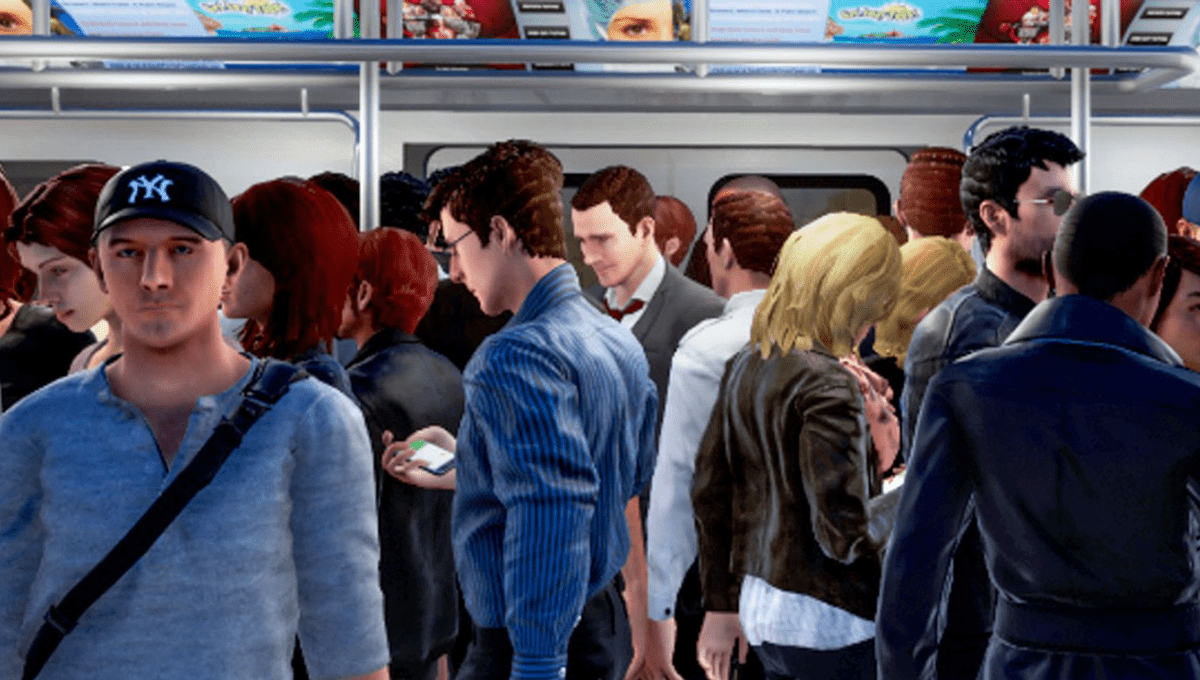
Your perception of time slows down when you are on a crowded train, a novel study using virtual reality (VR) has found.
A team of psychologists from Cornell University knew from previous studies that used visual stimuli or geometric shapes that experiencing social crowding could cause people’s sense of time to slow down. However, they didn’t know if this effect would be seen in situations more like the real world.
To test this, they decided to use a VR simulation of train journeys. Participants were placed on virtually simulated train journeys lasting (at random) 60, 70 or 80 seconds, with levels of crowding varying from 35 to 175 passengers in the carriage. The participants were able to look around their environment, at the virtual commuters on board.
Heart rate data was collected during the ride, and afterwards participants were asked to describe how pleasant or unpleasant the virtual journey had been, as well as do their best to accurately guess how long the journey had taken.
“We hypothesized that social crowding in an ecologically valid virtual context leads to negative feelings which in turn leads to a lengthened perceived travel duration,” the team explained in the study.
They were correct, with participants estimating that crowded trips took about 10 percent longer than the least crowded journeys. Pleasure experienced by the passengers had a larger effect, with unpleasant journeys feeling 20 percent longer than pleasant ones.
“The results showed that crowding level inside the subway car had a significant effect on one’s perception of travel time,” the team wrote in their study, “one additional passenger per square meter on average increased perceived duration of a 1–2 min trip by around 1.8 seconds.”
The team believe that train operators would benefit from considering the relationship between crowding and time perception in their models. They also suggest that people’s slowed perception of time could be alleviated if public transport vehicles were designed to make overcrowding less unpleasant.
“This study highlights how our everyday experience of people, and our subjective emotions about them, dramatically warps our sense of time,” Adam K. Anderson, professor in the Department of Psychology at Cornell University, said in a statement.
“Time is more than what the clock says; it is how we feel or value it as a resource.”
The study is published in the journal Virtual Reality.
Source Link: Your Perception Of Time Really Does Slow Down When You Are On A Crowded Train